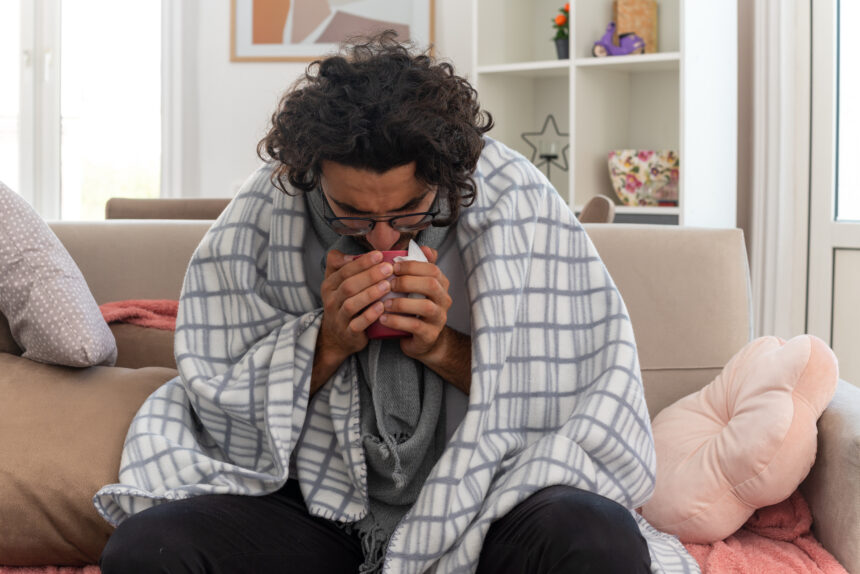Seasonal allergies can be a significant nuisance for many people, and South Africa is no exception. With its diverse flora and climatic conditions, the country offers a wide range of allergens that can trigger symptoms such as sneezing, itching, nasal congestion, and watery eyes. While allergies affect both men and women, it’s essential for South African men to understand how to cope with seasonal allergies effectively. In this guide, we will explore various strategies to manage and alleviate the symptoms of seasonal allergies, enabling men to enjoy an active and healthy lifestyle.
- Know your triggers: Understanding the specific allergens that trigger your symptoms is crucial in managing seasonal allergies. Common allergens in South Africa include pollen from grasses, trees, and weeds, as well as mold spores. Keep track of your symptoms and try to identify patterns that coincide with particular seasons or environments. This knowledge will help you take appropriate preventive measures.
- Monitor pollen counts: Stay informed about pollen forecasts and plan your activities accordingly. In South Africa, the Pollen and Allergy Institute provides regular updates on pollen counts across the country. On high pollen count days, it’s advisable to limit outdoor activities, especially during early morning and late afternoon when pollen levels tend to be highest.
- Keep windows closed: During high pollen seasons, keep your windows closed to prevent pollen from entering your home or car. Use air conditioning with high-efficiency particulate air (HEPA) filters to trap airborne allergens. Regularly clean or replace filters to ensure their effectiveness.
- Practice good hygiene: After spending time outdoors, it’s essential to practice good hygiene to minimize allergen exposure. Take a shower, wash your hair, and change your clothes to remove any pollen that may have collected on your body or clothing. Also, avoid drying your laundry outdoors during high pollen days.
- Use nasal irrigation: Nasal irrigation with saline solutions can help clear nasal passages, reduce congestion, and flush out allergens. Consider using a neti pot or a nasal spray specifically designed for this purpose. Follow the instructions carefully to ensure safe and effective use.
- Take over-the-counter medications: Over-the-counter antihistamines, nasal sprays, and decongestants can provide temporary relief from allergy symptoms. However, it’s essential to consult with a healthcare professional or pharmacist before starting any new medication, as they can advise you on the most suitable options and potential side effects.
- Explore natural remedies: Some natural remedies may offer relief from seasonal allergies. Local honey, for example, has been suggested to alleviate symptoms by exposing your body to small amounts of pollen. However, scientific evidence supporting its effectiveness is limited. Other natural remedies, such as butterbur extract or probiotics, may also provide relief for some individuals, but their efficacy varies from person to person. Always consult with a healthcare professional before trying any natural remedies.
- Consider allergen immunotherapy: For severe and persistent allergies, allergen immunotherapy, commonly known as allergy shots, may be an option. This treatment involves gradually exposing the body to increasing amounts of allergens to build tolerance over time. If other methods fail to provide relief, consult an allergist to determine if allergen immunotherapy is suitable for you.
- Maintain a healthy lifestyle: A healthy lifestyle can contribute to overall well-being and help alleviate allergy symptoms. Regular exercise, a balanced diet, and sufficient sleep can support your immune system and reduce the severity of allergic reactions. Additionally, managing stress levels through relaxation techniques or engaging in hobbies can also have a positive impact on your immune system’s response to allergens.
- Consult a healthcare professional: If your seasonal allergies significantly affect your daily life despite taking preventive measures and over-the-counter medications, it’s crucial to consult a healthcare professional. They can assess your symptoms, provide accurate diagnosis, and recommend appropriate treatment options tailored to your specific needs.
Living with seasonal allergies in South Africa doesn’t have to hinder your quality of life. By understanding your triggers, staying informed, and adopting effective strategies to manage symptoms, you can minimize the impact of allergies and enjoy the beauty of each season. Take control of your health and make informed decisions to ensure that seasonal allergies do not hold you back from leading an active and fulfilling life.










